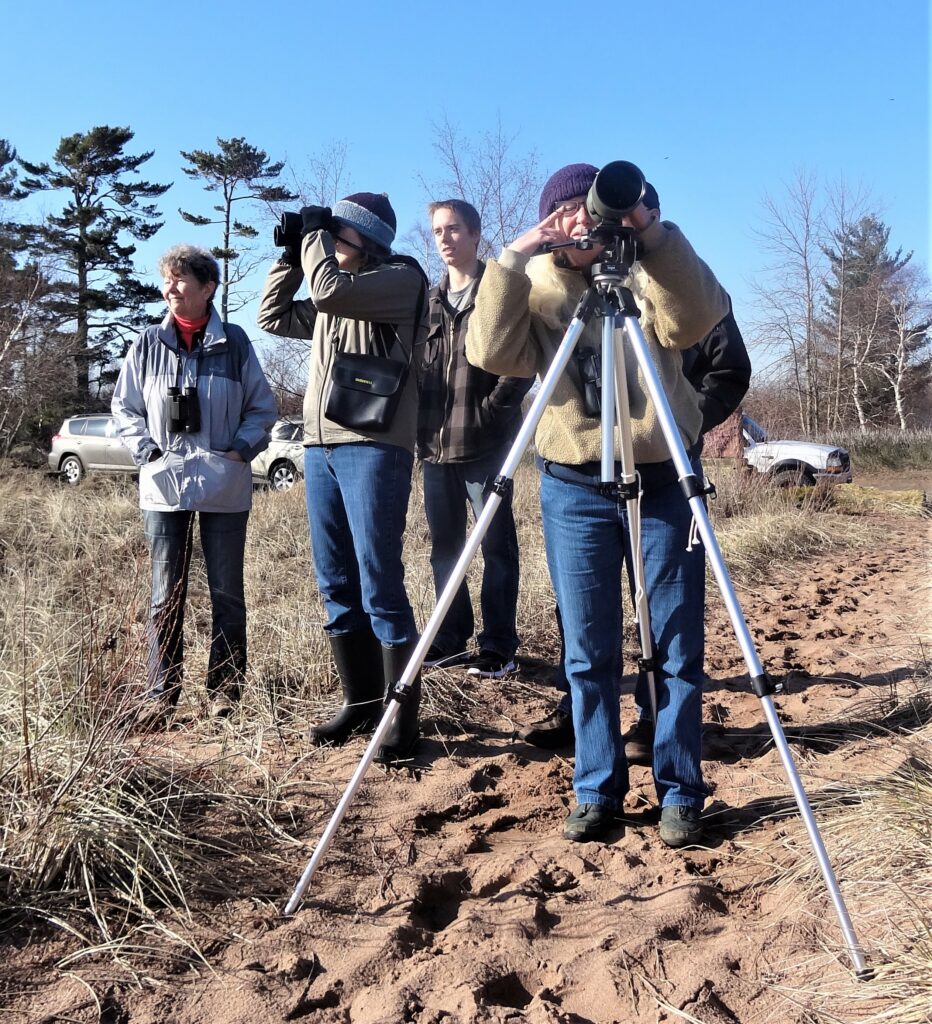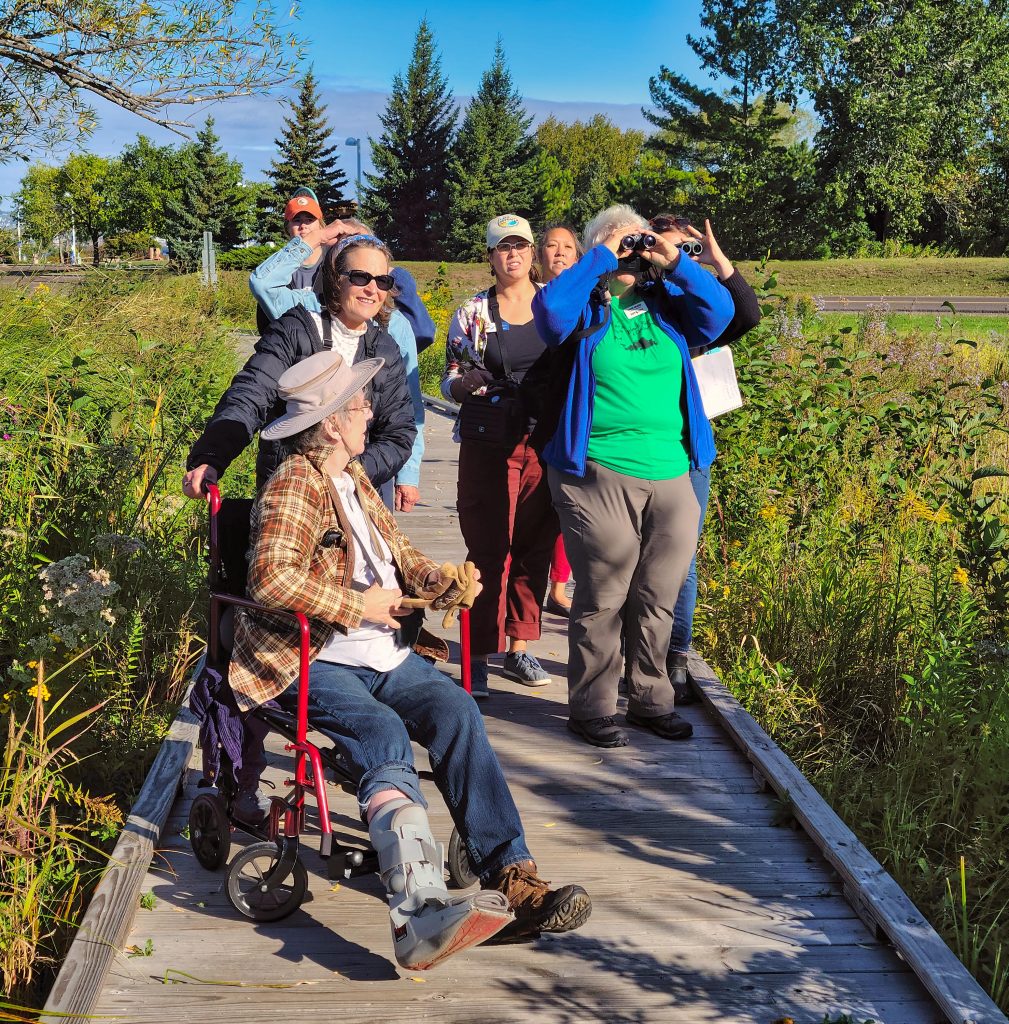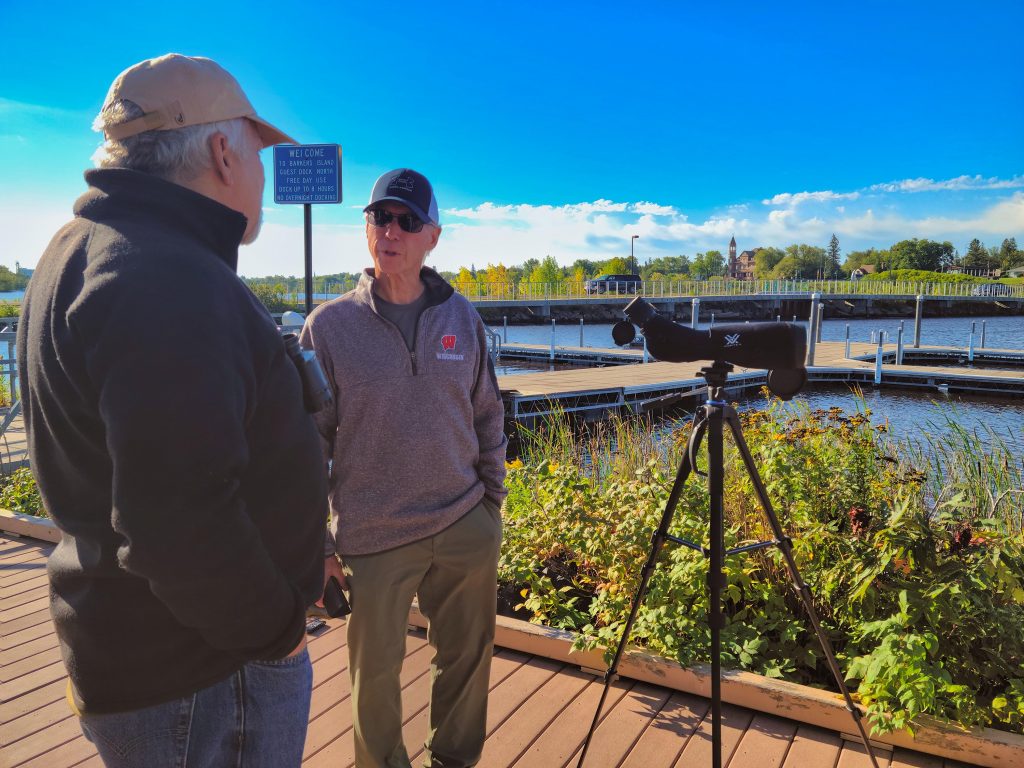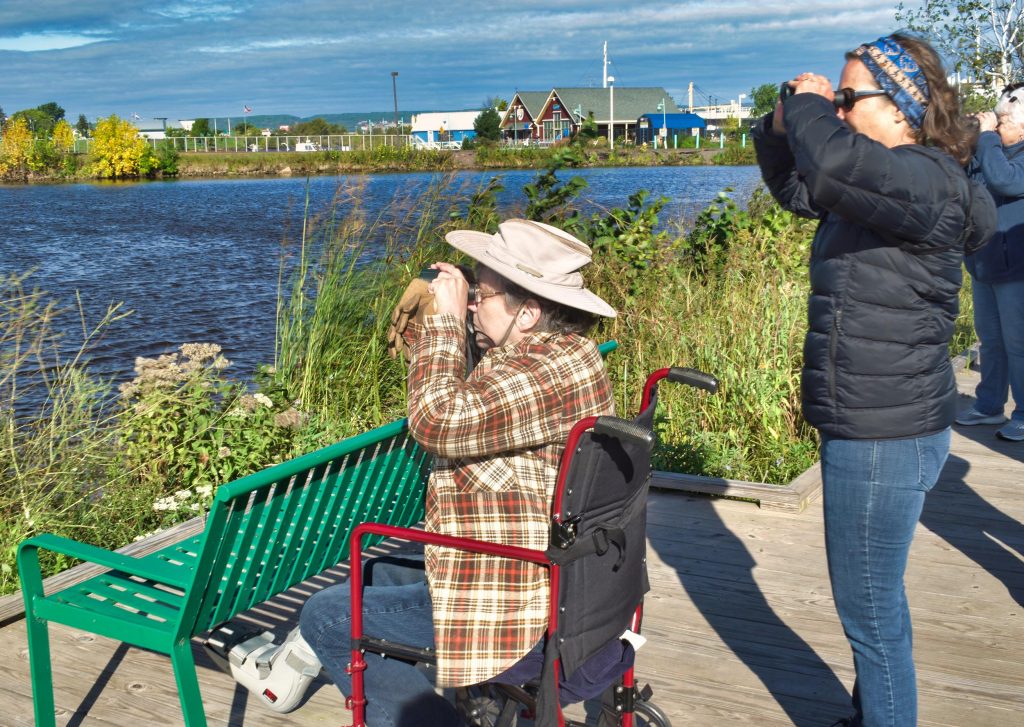Everyone Can Bird, First of Three Accessible Birding Events
All are invited to attend the first in a series of three free events designed for birders of all skills and abilities. Join “Everyone Can Bird: Spring Migration,” 9:30 – 11:30 a.m., Sunday, May 5, at Chambers Grove Park, Highway 23 and 137th Avenue West, Duluth.

Birders on Wisconsin Point. Image credit: Marie Zhuikov, Wisconsin Sea Grant
Hear the birds sing as they return to the north for breeding season. With spring migration already here, participants may see the first glimpse of a variety of forest birds such as warblers, sparrows, and swallows, and waterbirds such as grebes, mergansers and more.
Designed with accessibility in mind, the event will provide accessible parking, American Sign Language interpretation and binoculars with a wheelchair mount. A track chair – an all-terrain, electric-powered chair that can be used on hiking trails – is also available for use. Sit or walk along a packed gravel path throughout the park with expert bird guides to lead discussion and aid observation.
Free transportation is available from the Superior Public Library (1530 Tower Avenue) at 8:40 a.m. or at Menards in West Duluth (503 N 50th Avenue West) at 9 a.m.
The Friends of the Lake Superior Reserve, Duluth Parks and Recreation, Embark Supported Employment, Hawk Ridge Bird Observatory, Lake Superior Reserve, Minnesota Land Trust and Wisconsin Sea Grant are hosting this series.
In addition to the May 5 event, “Everyone Can Bird” opportunities will be held Aug. 14 at the Millennium Trail in Superior, and Oct. 12 at Hawk Ridge in Duluth.
Registration is encouraged but not required. Learn more or register at https://bit.ly/43ZGeu7. These activities are designed with access in mind. People who would like to request additional accommodations should email Luciana.Ranelli@wisc.edu or call Luciana at 715-399-4085 at least 10 days before the event.
The post Everyone Can Bird, First of Three Accessible Birding Events first appeared on Wisconsin Sea Grant.News Releases | Wisconsin Sea Grant
News Releases | Wisconsin Sea Grant
https://www.seagrant.wisc.edu/news/everyone-can-bird-first-of-three-accessible-birding-events-2/



